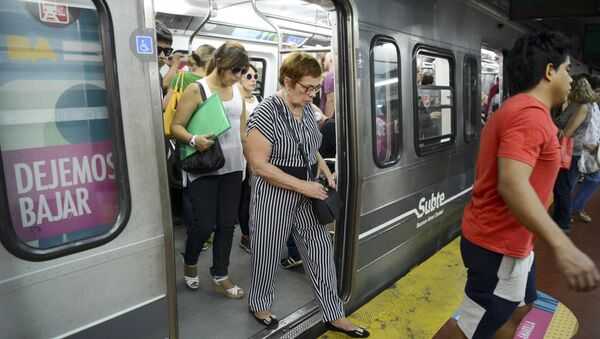"Both men and women have the right to travel by public transport and to feel safe using it. We are constantly witnessing scenes of abuse and violence against women on public transport in Buenos Aires. As women, we know that this problem affects all of us equally and that any of us could be a victim at any time," said Deputy Graciela Ocana, author of the initiative, as quoted by Clarin newspaper. Ocaña also noted that the initiative has already been successfully implemented in other countries, significantly decreasing the number of cases of sexual harassment.
Women-only passenger cars are available on some trains in Israel, Japan, India, Egypt, Iran, Brazil, Mexico, Indonesia, the Philippines, Malaysia and the United Arab Emirates. The earliest instance of women-only carriages dates back to 1912, when they were introduced during rush hour to separate male and female students in Japan. The so called "Flower Trains" service ended during World War II.




